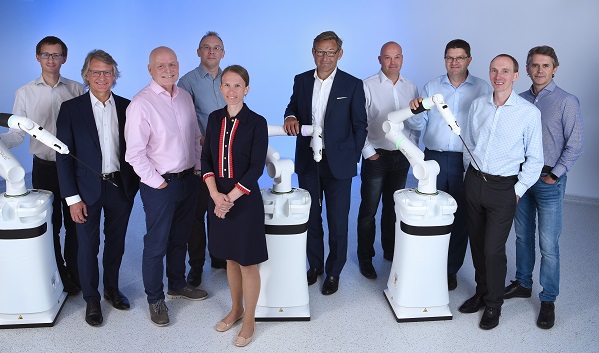News of Europe’s largest private financing in the medical technology sector to date puts the surgical robot industry in the spotlight as a growing number of firms in the sector look to raise more capital to continue research and development, manufacturing and expansion in domestic and international markets.
CMR has raised approximately $384.8m to date. According to a Financial Times report, the company’s valuation is near the $1bn mark.
The latest round was supported by existing investors: LGT, Escala Capital Investments, Cambridge Innovation Capital, Watrium, and Zhejiang Silk Road Fund as well as new US investors with deep sector knowledge.
Umur Hursever, Partner, LGT Lightstone, said as an existing investor, the firm was confident that CMR will “disrupt the status quo and transform surgery for millions of people worldwide”.
CMR Surgical also had a record-breaking Series B funding round in June 2018, which raised $100 million, at the time the largest ever series B raise by a medical device company in Europe.
Offering a hand
Biomimicking the human arm, CMR’s Versius system provides dexterity and precision to surgeons.
The company claims that the system’s versatility and affordability mean it can be used across a broad range of minimal access surgery (MAS).
The vision: CMR Surgical aims to make MAS universally accessible, rapidly increasing the number of robotic-assisted procedures that take place globally.
- The $3.7bn global robotic-assisted MAS market is growing at 19% a year, according to CMR.
- Surgical robots market is expected to gain a “massive” annual growth over 2019-2025 as current trends in healthcare have “conclusively indicated” that robotic surgery is the future of surgical procedures, according to the report by Global Market Insights.
- The global market for surgical robots is forecast to grow to $24bn by 2025, according to the research firm.
- Besides such ground-breaking progress, surgical robots have been involved for long procedures like knee and hip replacement.
Up to a fifth of surgeons in the UK (19%), US (20%) and Germany (15%) predict they are likely to retire early because of the physical strain of conducting minimal access/keyhole surgical procedures, according to a survey of over 450 surgeons across Europe and the US.
“Of late, precision robots have been able to make minimally invasive surgeries a reality and are being increasingly used in the fields of urology, gynecology, oncology, gastroenterology, thyroid, bariatric, colon, and rectal surgeries,” according to a Robotics and Automation News report.
“Not only does robotic surgery vastly assist doctors in increasing dexterity and reducing fatigue, advancement in robotic technology recently made it possible for the surgeon to conduct the world’s first telerobotic surgery from 32 kilometres away,” said the news report.
Fast track
Listed as the sixth fastest-growing business in the UK in 2018, according to Syndicate Room, Britain’s Fastest-Growing Businesses 2018, it employs 400 people across four continents and completed 30 first-in-human surgical procedures as part of an ongoing clinical trial in India earlier this year.
CMR Surgical is expected to launch in hospitals across Europe and Asia imminently with further international expansion expected thereafter.
The Series C financing was supported by Citigroup Global Markets and Morgan Stanley & Co. International as the Company’s placement agents and joint financial advisors.















